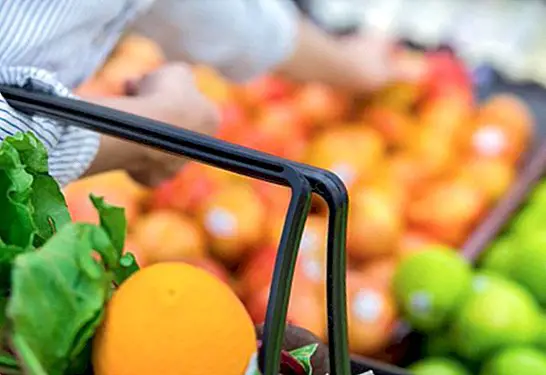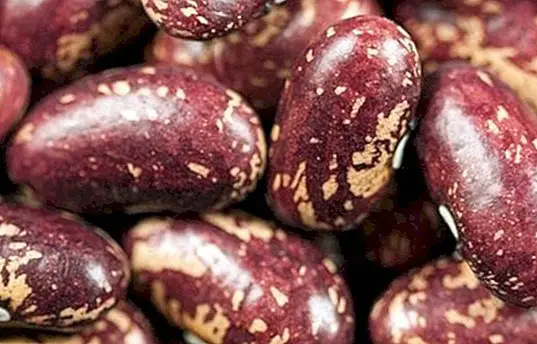The importance of folic acid before and during pregnancy
The folic acid is a water-soluble vitamin (that is, dissolved in water) belonging to the group B vitamins complex, which is popularly known by the name of vitamin B9.
Within the group of B vitamins, there is no doubt that it is one of the most important essential nutrients, not only during pregnancy, but also before the woman gets pregnant.

The importance of folic acid before you get pregnant
It is common to think only that folic acid - or vitamin B9 - is essential during pregnancy, but the truth is that its benefits are equally important before the pregnancy occurs.
Its importance just before pregnancy, is that it provides the mother with the recommended amounts needed to prepare her body for pregnancy, and also prevents deformations in the placenta, which ultimately would be a cause of abortion.
To provide your benefits to your body, it is advisable to take folic acid supplements at least 3 months before the time you want to get pregnant.
The benefits of folic acid during pregnancy
As indicated above, it undoubtedly becomes one of the most important vitamins during pregnancy, but not only during the gestation process, but even from time before the mother becomes pregnant.
During pregnancy, the recommended daily amount for expectant mothers is 300 pg a day, while during breastfeeding this amount drops a little, up to 260 pg / day.

In relation to the foods rich in folic acid, especially beer yeast, germ and wheat bran, nuts, pork liver and most green leafy vegetables stand out.
As we indicated briefly in the previous lines, Folic acid is very important before becoming pregnant, since it helps to prevent deformations in the placenta, which would ultimately mean an abortion.
During pregnancy, folic acid or vitamin B9 helps in the prevention of birth defects in the brain (anencephaly) and in the brain column (spina bifida, which can cause paralysis of the lower part of the body), due to malignancy closure of the neural tube at the cephalic and caudal ends.
In relation to which the mother has a deficit of folic acid, can suffer eclampsia, which consists of a process that is in albuminaria (presence of albumin in the urine) and hypertension.
Also the future mother must pay attention to the fact that the fetus does not suffer from folic acid deficiency during pregnancy, since it can cause it to be born prematurely, present low birth weight, or megaloblastic anemia.

That is, in short, in the fetus or baby provides many benefits, as it helps:
- Prevent deformations in the placenta.
- Prevent birth defects in the brain (anencephaly).
- Prevent birth defects in the spine (spina bifida).
- Prevent cleft lip.
- Prevent cleft palate
- Prevent childhood leukemia.
- Prevent you from being born prematurely.
- Prevent low birth weight.
- Prevent anemia
But in the future mom also brings many benefits. In fact, it is essential to prevent eclampsia, which is hypertensive and albuminous.
Recommended daily amounts of folic acid
Age | (pg / day) | ||
0 - 12 months | 50 | ||
13 years | 70 | ||
46 years | 100 | ||
7 - 10 years | 150 | ||
11 years | 200 | ||
Pregnancy | 300 | ||
Lactation | 260 |
Where to find folic acid: the richest foods
Whole grains
They provide fiber in addition to a good amount of folic acid. We can highlight in this sense the inflated wheat flakes or the whole grains in themselves.
Green leafy vegetables
Highlights include vegetables such as lettuce, chicory, watercress, cabbage, Swiss chard or arugula.

Nor can we forget other vegetables such as parsley, although it is true that the amount of folic acid tends to be somewhat lower than the above mentioned foods.
Vegetables
They are essential vegetables like chickpeas, peas, beans or the beneficial soy.
Fruits
They are ideal to maintain good health and not gain weight. Fruits such as orange, melon, banana or avocado stand out.
Nuts
Consuming a handful of nuts per day such as walnuts, hazelnuts, almonds or chestnuts are ideal to prevent not only the appearance of cardiovascular diseases, but to increase the supply of folic acid.
Food | Folic acid | ||
Beer yeast | 2.400 | ||
Wheat germ | 310 | ||
Wheat bran | 250 | ||
Nuts | 110 | ||
Liver of pork | 100 | ||
Green leafy vegetables | 90 | ||
Germinated | 80 | ||
Wholemeal bread | 39 | ||
Eggs | 30 | ||
White bread | 27 | ||
Fatty fish | 27 | ||
Bananas | 22 | ||
Potatoes | 15 |
What are the contraindications of folic acid?
Folic acid is a safe vitamin as long as its consumption is limited to the recommended daily doses.

However, although its consumption is recommended from 3 months before pregnancy, and during pregnancy in the first trimester, some studies have found that taking folic acid supplements in the last trimester of pregnancy could be associated with the baby developing asthma .
Therefore, since their lack is much more serious before pregnancy and in the first trimester of pregnancy, it would only be recommended during these two stages, replacing it after the second and third trimester with a slightly more moderate nutritional supplement (tea). we recommend always check with your doctor at all times). This article is published for informational purposes only. It can not and should not replace the consultation with a Physician. We advise you to consult your Trusted Doctor. ThemesMinerals Nutrition pregnancy


